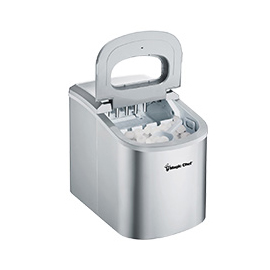The Role of Adhesion Additives in Modern Manufacturing
Adhesion additives play a crucial role in the production of various materials, enhancing the performance of coatings, adhesives, and sealants. These additives are essential in ensuring that products have superior bonding characteristics, which is vital in numerous applications across different industries, including automotive, aerospace, construction, and consumer goods.
Understanding Adhesion
Adhesion refers to the attraction between different substances at a molecular level. Adhesion additives work by modifying the surface properties of materials to improve the strength and durability of the bond formed between the substrate and the adhesive or coating. It is a multifaceted property influenced by surface energy, the presence of contaminants, and the materials' chemical composition.
Types of Adhesion Additives
There are several types of adhesion additives, each designed for specific applications. These can be broadly categorized into two groups chemical adhesion promoters and physical adhesion enhancers.
1. Chemical Adhesion Promoters These additives function by chemically interacting with both the substrate and the adhesive. They create strong chemical bonds that improve adhesion, particularly in challenging environments. For instance, silane coupling agents are commonly used in the automotive industry to improve the adhesion of paints and coatings to metal and plastic surfaces.
2. Physical Adhesion Enhancers Unlike chemical promoters, physical adhesion enhancers modify the physical properties of the adhesive or coating. These additives help roughen the surface, increase the surface area for bonding, or improve the wetting properties of the adhesive. Examples include various types of fillers, surfactants, and polymers that enhance the interfacial interactions between the surfaces.
Advantages of Using Adhesion Additives
The incorporation of adhesion additives into formulations offers numerous advantages
- Improved Bond Strength Adhesion additives can significantly boost the bond strength between dissimilar materials, leading to more robust applications.
adhesion additive

- Enhanced Durability With better adhesion comes increased durability. Products with adhesion additives are less likely to delaminate or fail under stress, extending the lifespan of the materials.
- Versatility Adhesion additives can be tailored to suit specific substrates and environmental conditions. This versatility makes them suitable for a wide range of applications, from high-performance automotive coatings to consumer products.
- Cost-Effectiveness While adding adhesion additives may increase initial costs, the long-term benefits, such as reduced failures and enhanced product performance, provide excellent value for manufacturers.
Applications in Various Industries
1. Automotive In the automotive sector, adhesion additives are crucial for ensuring that paints, coatings, and adhesives perform reliably in various conditions. They help prevent corrosion, improve overall aesthetic appeal, and contribute to vehicle safety by ensuring secure bonding of components.
2. Aerospace The aerospace industry requires materials that can withstand extreme temperatures and pressures. Adhesion additives improve the performance of bonding agents used in aircraft components, ensuring the integrity and safety of flight operations.
3. Construction In construction, adhesion additives enhance the performance of sealants and adhesives used in building materials. This is particularly important in applications where weather resistance and long-term durability are required.
4. Consumer Goods Household products often rely on strong adhesion for functionality. Whether in bottles, packaging, or everyday items, adhesion additives ensure that labels, seals, and coatings adhere properly, enhancing product reliability.
Conclusion
Adhesion additives represent a vital component of modern manufacturing processes, enabling the effective bonding of materials across various industries. As technology advances, the development of new and improved adhesion additives continues to evolve, offering innovative solutions to meet the growing demands of manufacturers. By enhancing adhesion, these additives not only improve product performance but also contribute to sustainability by prolonging the life of products and reducing waste. Thus, the importance of adhesion additives cannot be understated in the ongoing quest for efficiency and durability in manufacturing.
-
The Application and Significance of Construction RdpNewsMay.19,2025
-
Industrial Grade HpmcNewsMay.19,2025
-
Building Coating Adhesive Building Coating Adhesive HpmcNewsMay.19,2025
-
Application Of Hpmc For Detergent For Detergent In DetergentsNewsMay.19,2025
-
Application Of Hpmc Cellulose In Cement-Based MaterialsNewsMay.19,2025
-
Application Of High Quality Hpmc For Construction In The Field Of ConstructionNewsMay.19,2025




